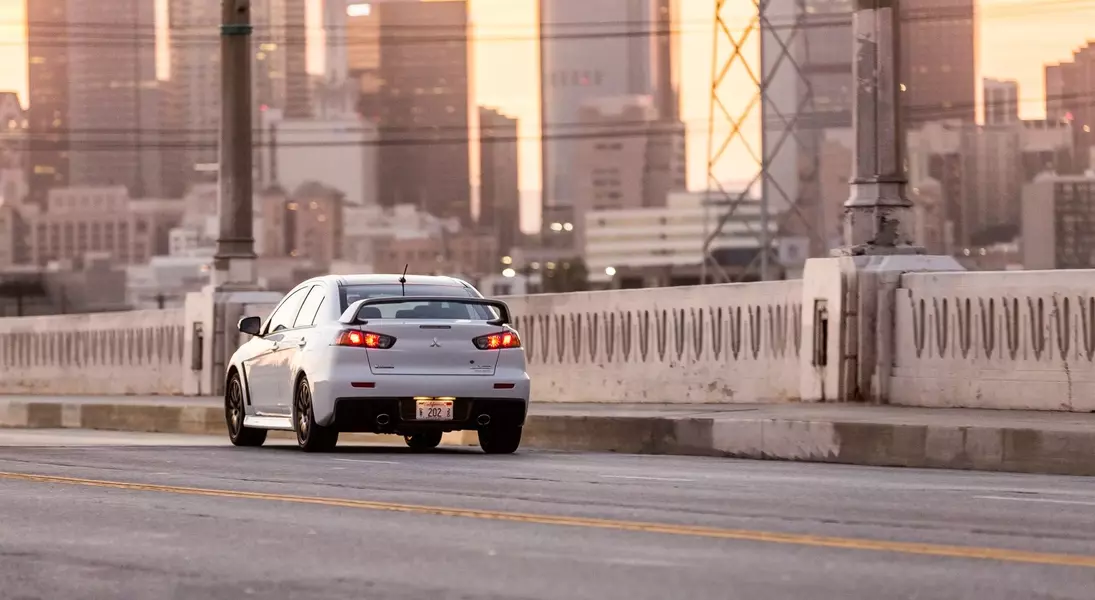





The beloved Mitsubishi Lancer Evolution, which ceased production in 2016, may soon make a triumphant return. Kaoru Sawase, Mitsubishi’s engineering fellow and a key figure in Ralliart's Super All-Wheel Control, has openly expressed his personal ambition for the Evo’s revival. This comes at a time when the automotive industry is rapidly embracing electrification, suggesting that any new iteration of the Evo would likely feature hybrid or fully electric powertrains. This strategic move could allow Mitsubishi to re-establish its presence in the high-performance sedan market, competing with rejuvenated rivals like the Toyota GR Corolla and Subaru STI concepts, while navigating the financial and developmental challenges of creating a new halo car without full alliance backing.
Mitsubishi Revives the "Evolution Dream" with an Electric Twist
The iconic Mitsubishi Lancer Evolution, affectionately known as the "Evo," a symbol of high-performance rallying, is on the cusp of a potential rebirth, fueling excitement among global enthusiasts. On November 11, 2025, in a pivotal interview with the Australian publication Drive, Kaoru Sawase, Mitsubishi's distinguished engineering fellow and a driving force behind Ralliart's Super All-Wheel Control technology, candidly shared his personal vision for the Evo’s future. He declared, "We have a dream, of course, for Lancer Evolution. It’s my personal dream." Sawase further revealed that Mitsubishi possesses a diverse array of advanced technologies, making the prospect of a modern Evo revival not just a fantasy but a plausible reality.
This renewed hope for the Evo coincides with the automotive industry's accelerating transition towards electrification. Sawase emphasized that any future Evo would need to integrate hybrid or electric power to remain competitive and relevant in today's dynamic market. He articulated, "Naturally, considering the global [environment], the times, that will be the direction that we will be going… I fully understand electrification performance for the vehicle dynamics." These insights underscore a serious internal dialogue within Mitsubishi regarding the potential design and powertrain of a next-generation Evo, leaving the ultimate question of its official launch as a matter of timing rather than feasibility.
The automotive landscape is ripe for the Evo's return, especially with a renewed focus on all-wheel-drive performance sedans. Toyota's GR Corolla has already invigorated this segment, and Subaru has teased exciting STI concepts at the 2025 Japan Mobility Show. Mitsubishi now stands at a crucial juncture, facing both significant opportunities and challenges. An electrified Evo could dramatically enhance its brand image and firmly re-enter the competitive arena. However, the path is not without obstacles. The original Lancer platform is long discontinued, and developing a completely new halo car is an expensive undertaking, particularly without robust financial backing from alliance partners like Renault and Nissan. While Mitsubishi's revitalized Ralliart division has primarily focused on aesthetic enhancements rather than core performance improvements, the discussions around the Evo suggest a deeper commitment to its performance heritage. If all these complex elements align, the stage could be set for an electrifying new chapter for this automotive legend.
The potential return of the Lancer Evolution, reimagined for the electric age, signals a fascinating shift in the automotive industry. It's a testament to how legacy and innovation can intertwine, allowing iconic models to adapt and thrive in new forms. For enthusiasts, it’s a thrilling prospect, offering a blend of nostalgic performance with cutting-edge environmental consciousness. For Mitsubishi, it represents a bold step towards reclaiming its position as a pioneer in performance vehicles, proving that even a storied past can pave the way for a revolutionary future. This revival could redefine what a high-performance sedan can be, pushing boundaries and inspiring a new generation of drivers.
